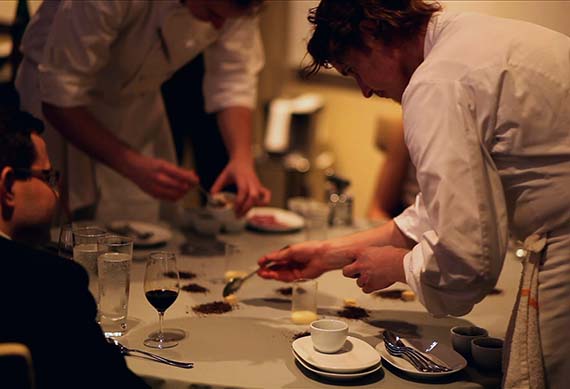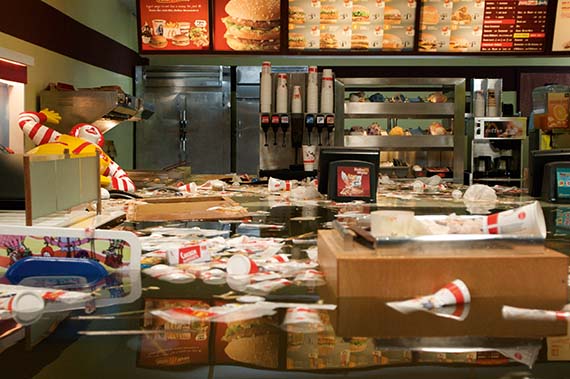
During ‘Harvest: Art, Film and Food’, GOMA Talks explores food, its production, consumption, symbolism, and role in contemporary life and continues its partnership with national broadcaster ABC Radio National (RN). We asked Paul Barclay, host of our last GOMA Talks during ‘Harvest’ about the politics of food before Thursday 31 July
Cookbooks, cooking shows and celebrity chefs dominate the Australian cultural and media landscape. We are seemingly obsessed with food. The affluent middle class is embracing organic food and the ‘foodie’ culture, which includes expensive, restaurant-produced ‘designer’ meals, in which the focus is as much on the aesthetics of presentation and where the food is sourced as it is on the taste and the culinary expertise involved in its preparation. Yet at the same time, some say, we have lost the art of making a simple, nutritious home-cooked meal.
Paradoxically, food is also portrayed as ‘public enemy number one’ when it comes to modern ‘lifestyle’ diseases such as obesity, diabetes, heart disease and others. Collectively, we are overindulging in the wrong foods — those that are highly processed, high in saturated fats, sugar and salt. Eating too much, and the resultant obesity ‘epidemic’, may now be more of a threat to public health, and cost more lives, than malnutrition.

Never before has so much ‘good’ food been available to us, yet not everyone is able to benefit from this. Fresh, high-quality produce, purchased at farmers’ markets, for example, can be expensive and out of reach to the average consumer. At the same time, political debates rage over food labelling, and whether ‘junk food’ should be taxed to discourage its consumption. Dieting is almost a national sport, if magazine articles and television shows such as The Biggest Loser are anything to go by.
While we may be in the grip of a cultural obsession, it is legitimate to ask if we are paying enough attention to how and where our food is produced, and do we know enough about the food we eat. In the near future, sustainability is likely to become a priority, as environmental imperatives such as climate change and other factors come to the fore.